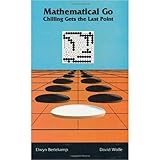That is exactly the reason that I think go (1) may be solved before chess is solved.
For go, there are some results that give hope that an all encompassing theory exists. For chess, the best we have are results of exhaustive searches of relatively simple situations and a bunch of heuristics. It is true that, together, those have led to spectacular results, but I do not think they will lead to a proof about who wins chess.
(1) to be exact: Mathematical go, as defined in http://www.amazon.com/Mathematical-Go-Chilling-Gets-Point/dp.... ko rules can have variations, and there are variations in how to count points at the end of a game. Both may affect only a tiny fraction of games, but a alpha-beta search may need only one path that is a win under ruleset A and a loss under ruleset B to change the outcome of a game.


Also, as to whether it is harder: I think we will see a complete analysis of go before we see one of chess because of its simpler structure. Reason is that go is mathematically simpler. Because of that, there actually is math on go. For example, http://www.amazon.com/Mathematical-Go-Chilling-Gets-Point/dp... talks about math that proves the value of some endgames that had been discussed for years by pro go players. Yes, that is a fair stretch from making good moves in the beginning of a game, but it's way better than the exhaustive searches we need to prove anything about chess endgames.